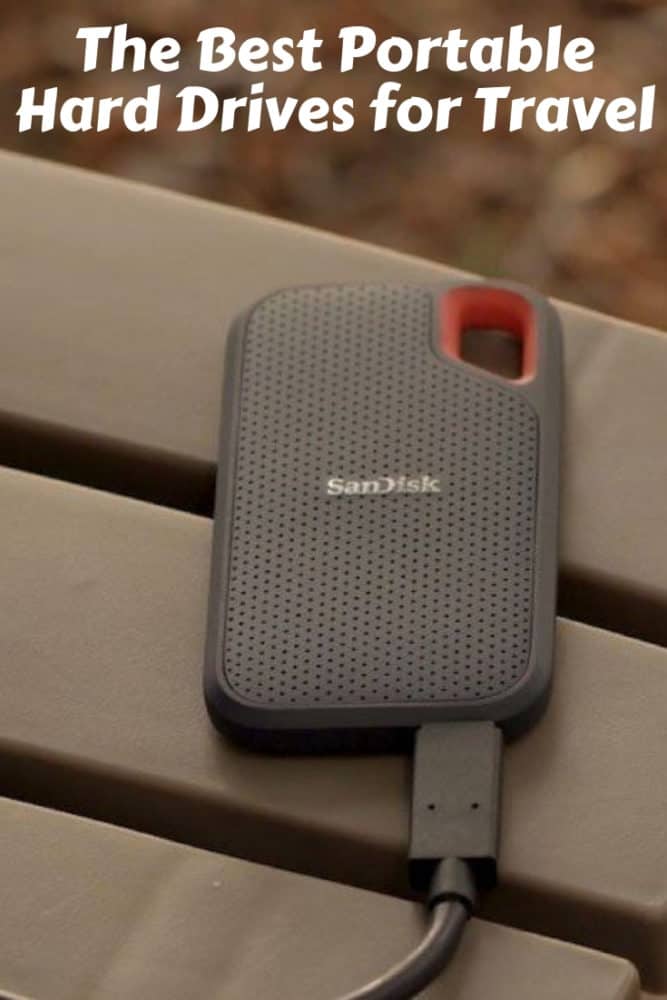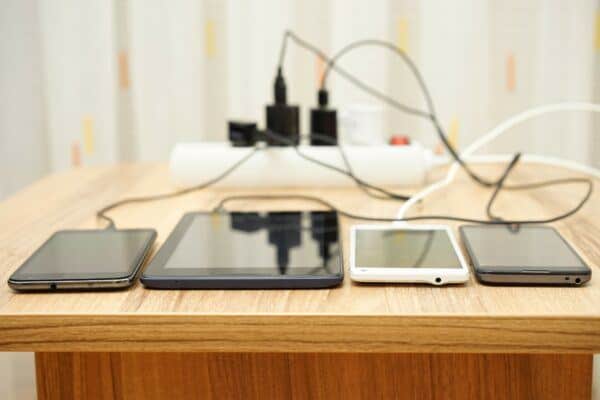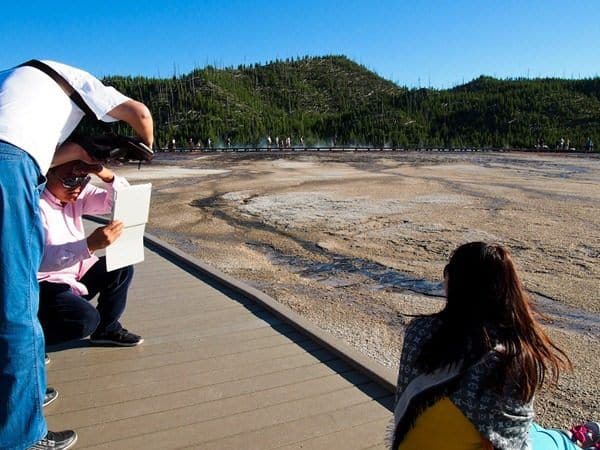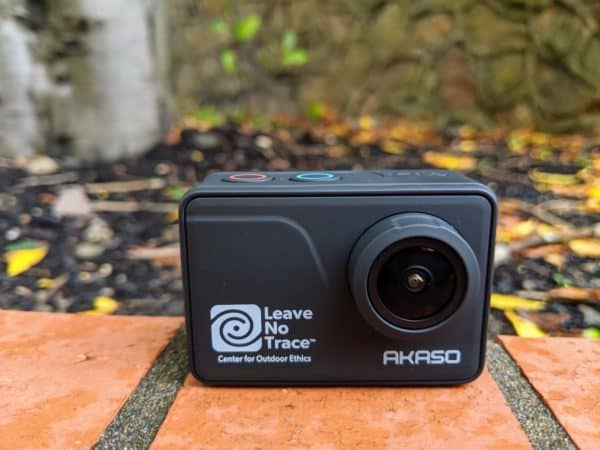The Best Portable Drives for Travel in 2023
We may earn a commission from purchases you make after clicking links on this site. Learn more.If you’re a traveling photographer or videographer, especially one who spends time in remote or rugged areas, having a good portable drive is vital. When you’re generating hours of footage or hundreds of shots every day, it’s the only way to quickly and reliably back up those irreplaceable files.
Of course, having a backup is useless if you can’t rely on it, which is why most cheap external drives aren’t much good on the road. They’re designed to sit on a desk for most of their life, not deal with the knocks, drops, rain, dust, and everything else that makes up the average travel day.
There are a few, though, built with this lifestyle in mind. Some just have basic drop protection, while others can handle dust storms and complete submersion with ease. Many are very small and light, fitting easily in your pocket, and some are extremely fast, so you can back up huge video files in under a minute.
The main decision is whether to go for a hard drive with a traditional spinning disk (HDD) inside, or a more recent solid-state drive instead. SSDs are the best option, since they’re smaller, lighter, more robust, and much faster, but those benefits come with a noticeable price jump.
These portable drives span the full range of options, from budget-minded versions to high-end performers.
Note: I’ve linked to the 2TB version of each drive to make price comparisons easier. Most come in other capacities, of course, so you can scale up or down to match your budget and storage needs.
- Size: 5.5 x 0.9 x 3.4 inches
- Type: HDD
- Connector: USB-A
- Speed: 120MB/s
- Durability: IPX4, basic drop protection
- Size: 5.1 x 0.7 x 3.2 inches
- Type: HDD
- Connector: USB-A
- Speed: 100MB/s
- Durability: Basic drop protection
- Size: 3.7 x 2.0 x 0.6 inches
- Type: SSD
- Connector: USB C
- Speed: 1050MB/s
- Durability: IP67, 10-foot drop protection, 2000lb crush
- Size: 3.5 x 2.3 x 0.5 inches
- Type: SSD
- Connector: USB C
- Speed: 1050MB/s
- Durability: IP65, 10-foot drop protection
Best on a Budget: Silicon Power A62

For around the same price as standard portable hard drives, the Silicon Power A62 adds some much-needed extra durability.
Along with IPX4-rated protection against spraying water, the drive’s rugged rubberized case gives a useful degree of shock protection. Performance is reasonable for a spinning drive like this, at around 120Mb/s read (50-75MB/s write), and there’s both USB 3.1 (Gen 1) and USB 2 support.
The A62 is slim and fairly lightweight, with a three-year manufacturer warranty. Like all such warranties, though, it only covers the drive, not the data on it. A short USB-A to USB-A cable is included, which tucks into the flexible silicone outer casing to keep it in place and help ensure you don’t lose it.
There’s also a USB C adapter, which is pretty much a requirement these days. This isn’t a USB C drive, though, so you’ll need to keep hold of that adapter or use a dedicated USB-A to C cable. We’d much prefer to see a USB C interface on the drive, but for the price, we’ll let it slide for now.
Put simply, this is a solid portable drive option for travelers on a budget, with more protection from the elements than you’d expect for the price.
Pros
- Low price
- Water resistant
- Attractive case with cable storage
- Comes with a USB C adapter
Cons
- No official dust or dirt protection rating
- USB-A to USB-A cable harder to find if you lose or break it
Runner-Up, Best on a Budget: Transcend StoreJet 25M3S

We’ve long recommended the Transcend StoreJet 25M3S for travelers on a budget.
While recent price drops on the Silicon Power A62 (above) make it our current budget pick, the Storejet is a worthy competitor if you’re more worried about drops than water damage. Its rugged enclosure, with its anti-shock rubber case and internal suspension system, ensures the drive takes minor knocks and bumps in its stride.
USB 3.1 Gen 1 support (5Gbps) gets the most speed out of the 5400rpm drive during data transfers, with USB 2 compatibility for older machines. The Storejet ships with some basic backup software, and if you use it, there’s a button on the drive that lets you do one-touch backups.
The company makes sleeker and frankly more attractive versions of this drive as well, but you don’t get the same level of protection. They’re fine to use around the home or office, but when it comes to keeping your data safe on the road, durability beats looks every time!
Pros
- Reasonable price
- Can handle drops better than much of the HDD-based competition
- USB 3.1 (gen 1) and USB 2 support
Cons
- No official water resistance
Best for Taking a Beating: Sandisk Professional G-DRIVE

While basic drop resistance is a good start, you’re going to need something more if your trips take you off the beaten path. When you need your storage to be able to handle even the worst travel days, the Sandisk Professional G-Drive series is where it’s at.
With no moving parts, solid-state drives are inherently more able to handle drops and bumps, but here that’s just the beginning.
The G-Drive range can handle being submerged in three feet of water for half an hour, dropped 10 feet onto (carpeted) concrete, and crushed with 2000lbs of force, and can keep out dust and dirt almost indefinitely.
SSDs are much faster than standard hard drives as well, and the G-Drive can push data through at up to 1050MB/s. That makes it fast enough for even videographers and pro photographers who need to move large amounts of data around in a hurry.
All of this speed and durability comes at a price, of course: it’s typically more expensive than other SSDs, although depending on the day, there’s not always a lot in it.
It’s a USB C drive, with a cable in the box, but there’s also a USB C to USB-A cable for those with older machines. Weighing barely three ounces and fitting in the palm of your hand, if you’ve got the money, the G-Drive is about as good as it gets in rugged portable storage right now.
Pros
- Impressive durability
- Fast read and write speeds
- USB C and USB-A cables in the box
- Lightweight
Cons
- Somewhat expensive, even by SSD standards
Get regular updates from the world of travel tech and remote work
News, reviews, recommendations and more, from here and around the web
Best Portable SSD: Samsung T7 Shield

We’ve loved Samsung’s range of tiny, sleek portable SSD drives since they first came out, and the latest T7 Shield model is no exception.
Available in sizes up to 2TB, as usual you’ll pay more than you would for a hard disk-based version with the same capacity. In return, you’ll get a drive that’s up to five times faster, weighs under 3.5 ounces, and is about the size of a small stack of business cards. Seriously, it’s absolutely tiny.
The Shield is Samsung’s rugged version of the standard T7, and adds plenty of protection to the original boardroom-focused model. Rated to IP65, you’ll get good water resistance and great dust-proofing, and it’s rated to handle drops of nearly ten feet without damage or data loss.
Performance is blazingly fast, with transfer speeds of up to 1050MB/s. You’ll need to be using a computer with a USB C 3.2 Gen 2 (20Gb/s) port to see those kinds of numbers, but it’s backward-compatible with slower versions as well.
The T7 Shield has password protection and hardware encryption built-in. If you’d prefer to use your fingerprint to unlock your data, there’s a somewhat more expensive Touch model as well, but you lose the extra durability. For travel, we prefer the Shield. Either way, all T7 models have a three-year warranty, with both USB C and USB-A cables included in the box.
If you’re after spectacular performance from a small, durable portable drive, at a reasonable price, there’s nothing better than the Samsung T7 Shield for travelers right now.
Pros
- Small and light
- Fast read and write speeds
- Hardware encryption
- Proper drop, dust, and water resistance
Cons
- Water resistance could be a little better
Title image via Sandisk, others via Amazon









yes but if i am out in yukon whats best for getting photos off my iPhone? do these have air drop
Apple doesn’t license Airdrop to other companies and doesn’t make anything appropriate itself, so that’s not an option.
I’d personally use one of the approaches for iOS (and Android) that we discussed here.